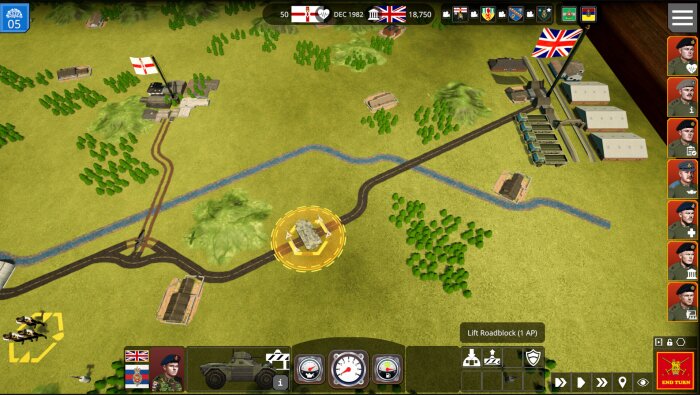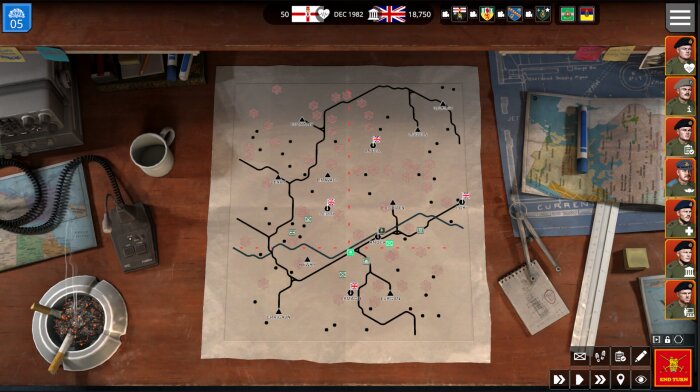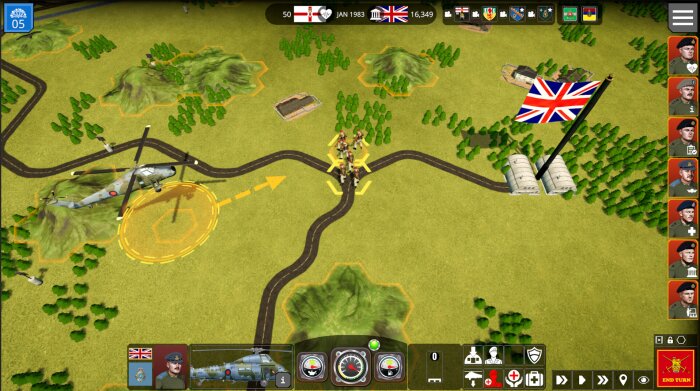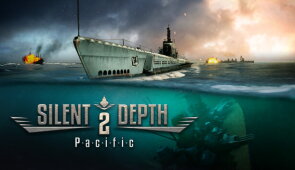Northern Ireland '74 Game Details
Title: Northern Ireland '74
Genre: Indie, Strategy
Developer: Every Single Soldier
Publisher: Every Single Soldier
Release Date: 8 April 2025
Store: Steam
Game Releasers: P2P
About Northern Ireland '74 Game
Control the chaos of 1974 Northern Ireland in this turn-based strategy game. Win hearts and minds, manage factions, and contain insurgency to secure peace. Releasing April 8, 2025.

The Northern Ireland Conflict, often referred to as "The Troubles," stands as a poignant and complex chapter in modern history. Spanning roughly three decades, from the late 1960s to the Good Friday Agreement in 1998, this ethno-nationalist conflict in Northern Ireland was characterized by deep-seated political, social, and sectarian divisions. While primarily confined to Northern Ireland, the conflict's ramifications extended into the Republic of Ireland, England, and even mainland Europe, leaving an indelible mark on the region and its people.
At its core, The Troubles represented a clash between two distinct communities, each with its own set of aspirations and ideologies. On one side were the Nationalists, primarily composed of Irish Catholics who sought unification with the Republic of Ireland. Their desire for a united Ireland stemmed from a sense of cultural, historical, and national identity, deeply rooted in Irish heritage and a longing for self-determination. They felt marginalized and discriminated against within Northern Ireland, where they perceived systemic inequalities and a lack of political representation.
On the opposing side were the Loyalists, primarily composed of Ulster Protestants who wished to remain part of the United Kingdom. They saw themselves as British citizens with a distinct Ulster identity, fiercely loyal to the Crown and the Union. They feared that unification with the Republic of Ireland would threaten their cultural, religious, and political identity, potentially leading to a loss of their rights and freedoms. The presence of the British Armed Forces in Northern Ireland was seen by Loyalists as a necessary measure to protect their interests and maintain stability.

The conflict was further fueled by the presence of paramilitary groups, most notably the Irish Republican Army (IRA) on the Nationalist side, and the Ulster Volunteer Force (UVF) on the Loyalist side. These organizations engaged in acts of violence, including bombings, assassinations, and armed confrontations, exacerbating the climate of fear and uncertainty. The IRA sought to achieve Irish unification through armed struggle, while the UVF aimed to defend the Union and prevent Northern Ireland from being absorbed into the Republic of Ireland.
The British Armed Forces were deployed to Northern Ireland in 1969, initially with the aim of maintaining order and protecting the Catholic population. However, their presence soon became a source of contention, with Nationalists often viewing them as an occupying force and Loyalists generally welcoming their presence. The British Army found itself caught in the middle, attempting to balance the aspirations of both communities and prevent the conflict from escalating further.
The Royal Ulster Constabulary (RUC), the police force in Northern Ireland, also played a crucial role in the conflict. However, the RUC was predominantly Protestant in its composition, leading to accusations of bias and discrimination from the Nationalist community. This perception further eroded trust in law enforcement and contributed to the cycle of violence. The lack of impartiality further alienated Nationalists and made it difficult to achieve a peaceful resolution.

The Northern Ireland Conflict was not solely a military or political struggle; it also had a profound impact on the social fabric of the region. Communities became deeply segregated, with Catholics and Protestants living in separate neighborhoods and attending different schools. This segregation reinforced existing prejudices and made it difficult to foster understanding and reconciliation. The social divide was further entrenched by the constant threat of violence and the pervasive atmosphere of fear.
Despite the decades of violence and division, efforts were made to find a political solution to the conflict. Numerous peace initiatives were launched, involving political leaders, community activists, and international mediators. These efforts culminated in the Good Friday Agreement of 1998, which established a power-sharing government in Northern Ireland and paved the way for a lasting peace. The Good Friday Agreement represented a significant breakthrough, but it also required compromise and difficult decisions from all sides.
The Good Friday Agreement brought an end to the major paramilitary campaigns, but the legacy of The Troubles continues to shape Northern Ireland today. The region still grapples with issues of sectarianism, social division, and economic inequality. Reconciliation and healing remain ongoing processes, as communities strive to overcome the wounds of the past and build a more peaceful and inclusive future. The path towards reconciliation is long and arduous, but the people of Northern Ireland are committed to creating a better future for themselves and future generations.

The challenges faced by the British Armed Forces, the RUC, and the political leadership during The Troubles were multifaceted and demanding. Balancing the aspirations of the Loyalist and Nationalist communities while containing the violence perpetrated by paramilitary groups required a delicate and nuanced approach. Winning the "Hearts and Minds" of the local population was crucial to undermining support for the paramilitaries and creating an environment conducive to peace. This involved addressing grievances, promoting economic opportunities, and fostering a sense of fairness and justice.
Intelligence gathering played a vital role in combating the insurgency. Informants and military intelligence were essential for tracking insurgent leaders, disrupting their operations, and preventing attacks. Police actions, such as raids and roadblocks, were used to apprehend suspects and seize weapons. However, these tactics also had the potential to alienate communities and fuel resentment. The use of special forces, such as the SAS, was reserved for high-risk operations and required careful consideration to minimize civilian casualties.
Logistical support was also crucial for sustaining military and police operations. Maintaining vehicles, repairing infrastructure, and providing essential supplies required a well-organized and efficient logistical network. The presence of IEDs (Improvised Explosive Devices) posed a constant threat to security forces and civilians alike, requiring specialized EOD (Explosive Ordnance Disposal) teams to safely defuse them. The constant threat of IEDs added another layer of complexity to the already challenging security environment.

The political dimension of the conflict was equally important. Maintaining political support back in England was essential for sustaining the military and police presence in Northern Ireland. Stakeholder management was crucial to ensure that the various political factions and interest groups were kept informed and engaged in the peace process. The handover of security responsibilities to the UDR (Ulster Defence Regiment) and the RUC, as well as the holding of elections, were important steps towards normalizing the political situation and empowering local communities.
The creation of a turn-based strategy game centered on the Northern Ireland Conflict offers a unique opportunity to explore the complexities of this historical period. The game's procedurally generated scenarios ensure extended playability, allowing players to experience the conflict from different perspectives and make different choices. The game's features, such as the "Hearts and Minds" victory conditions, the full range of Army/Paramilitary units, civilian disobedience, special forces operations, the operational intelligence map, and the logistical model, provide a comprehensive and immersive simulation of the conflict.
The game provides the capacity to control multiple factions. Players will have to decide to take control of the UK Army or the RUC. Order of battle management will be available for the players to make use of, as well as a political support model. The political support model in this game will take into account the sentiment back home in England.
By engaging with this game, players can gain a deeper understanding of the challenges faced by those involved in the Northern Ireland Conflict and the difficult choices they had to make. The game has the potential to foster empathy and promote dialogue about this important chapter in history. It also serves as a reminder of the human cost of conflict and the importance of seeking peaceful solutions to political disputes.
Northern Ireland '74 Key Features
- * Immerse yourself in the tumultuous era of the Northern Ireland Conflict (1966-1998)!
- * Master the art of "Hearts and Minds" and navigate the intricate web of Loyalist and Nationalist aspirations!
- * Command the British Armed Forces and the Royal Ulster Constabulary (RUC)!
- * Contain the IRA and UVF, preventing insurgency and destabilization!
- * Experience turn-based strategy, procedurally generated for extended playability!
- * Manage a full and authentic order of battle, deploying a wide range of Army/Paramilitary units!
- * Wield political influence, manage stakeholder sentiment, and secure support back home!
- * Quell civilian disobedience, navigate riots and marches, and maintain order!
- * Deploy Special Forces (SAS) for covert operations and strategic advantage!
- * Uncover operational intelligence, track insurgents, and capture their leaders!
- * Enforce police actions, conduct raids and roadblocks, and maintain the peace!
- * Defuse IEDs, manage logistics, maintain vehicles, and construct infrastructure!
- * Handover operations to UDR/RUC and prepare for elections!
Northern Ireland '74 Gameplay
Download Links for Northern Ireland '74
Download Northern.Ireland.74.v0.7
Mega
Northern.Ireland.74.v0.7.zip
1fichier
Northern.Ireland.74.v0.7.zip
Pixeldrain
Northern.Ireland.74.v0.7.zip
Mediafire
Northern.Ireland.74.v0.7.zip
Qiwi
Northern.Ireland.74.v0.7.zip
Gofile
Northern.Ireland.74.v0.7.zip
Ranoz
Northern.Ireland.74.v0.7.zip
Drop
Northern.Ireland.74.v0.7.zip
Bowfile
Northern.Ireland.74.v0.7.zip
Send.cm
Northern.Ireland.74.v0.7.zip
Fastupload
Northern.Ireland.74.v0.7.zip
Frdl
Northern.Ireland.74.v0.7.zip
Wdfiles
Northern.Ireland.74.v0.7.zip
Mxdrop
Northern.Ireland.74.v0.7.zip
Chomikuj
Northern.Ireland.74.v0.7.zip
Vikingfile
Northern.Ireland.74.v0.7.zip
Down mdiaload
Northern.Ireland.74.v0.7.zip
Hexload
Northern.Ireland.74.v0.7.zip
1cloudfile
Northern.Ireland.74.v0.7.zip
Usersdrive
Northern.Ireland.74.v0.7.zip
Krakenfiles
Northern.Ireland.74.v0.7.zip
Filefactory
Northern.Ireland.74.v0.7.zip
Megaup
Northern.Ireland.74.v0.7.zip
Clicknupload
Northern.Ireland.74.v0.7.zip
Dailyuploads
Northern.Ireland.74.v0.7.zip
Ddownload
Northern.Ireland.74.v0.7.zip
Rapidgator
Northern.Ireland.74.v0.7.zip
Nitroflare
Northern.Ireland.74.v0.7.zip
Turbobit
Northern.Ireland.74.v0.7.zip
Hitfile
Northern.Ireland.74.v0.7.zip
Katfile
Northern.Ireland.74.v0.7.zip
Multiup
Northern.Ireland.74.v0.7.zip
System Requirements for Northern Ireland '74
To run Northern Ireland '74 on your PC, you'll need a system that meets these minimum requirements. Firstly, your operating system must be Windows 7, 8, or 10. The processor should be a 2.0 GHz CPU or better, and you'll need at least 2 GB of RAM. Your graphics card must be DirectX 9.0c compatible and support Shader Model 2 or higher. Finally, ensure you have at least 3 GB of available storage space on your hard drive for the game installation.
Minimum:- OS *: Windows 7, 8, 10
- Processor: 2.0 Ghz CPU
- Memory: 2 GB RAM
- Graphics: DirectX 9.0c compatible graphics card (Shader Model 2+)
- Storage: 3 GB available space
How to Download Northern Ireland '74 PC Game
1. Extract Release
2. Launch The Game
3. Play!

























